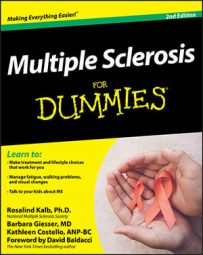One of the big complaints about multiple sclerosis (MS) is that it takes a lot of time and effort. For the person with MS, the drain on time and effort is more obvious — it may take longer, with a greater amount of effort than before, to get the same things done.
Simply getting around can sometimes be exhausting. In fact, basic activities may take so much of the person’s energy that little is left over for extras, particularly if he or she is experiencing MS-related fatigue.
But family members may feel their energy being drained as well. They may be pitching in to help with various activities, or they may be taking on more responsibilities than they had before. Everyone may find that MS calls on them to be more flexible, more creative, and more solution-focused — all of which can sometimes feel extremely tiring.
In fact, another complaint from families is that “nothing is spontaneous any more” — they feel that everything takes more planning, more prep time, and more work.
Here are some strategies for making sure that your family’s energy resources are used wisely:
Focus on what’s most important. The key lies in figuring out where you — individually and collectively — want to focus your time and energy resources. Then, you should let those priorities guide your choices and plans.
Make sure that your home is arranged to maximize accessibility, safety, comfort, and ease of operation. Doing so will enable the person with MS to navigate safely and independently while saving all of you a lot of time and energy. An occupational therapist can advise you on this kind of environmental design.
And after you’ve arranged the house the way you want it, try to remember that keeping things in their proper places means less searching and organizing.
Make every effort to plan strategically. Whether it’s errands, a family outing, a household project, or a holiday gathering, take the time to think things through step-by-step. Doing so will save all of you a lot of time and energy in the long run.
Share the workload. Many families have traditionally divided the labor around the house into boy jobs and girl jobs — “You clean the gutters and I clean the floors” or “You deal with the kids and I deal with the lawn.”
However you have divided things in the past, you may need to begin thinking about tasks in a different way. You need to figure who can do which tasks with the best outcome and the least effort — even if a boy ends up doing a “girl task” and vice versa.
Use mobility aids. Believe it or not, mobility aids can benefit the whole family. The point is that the right piece of equipment — a cane or motorized scooter, for example — can make it possible for family members to enjoy activities and each other’s company.
When mom uses a motorized scooter to go to the zoo, for example, the entire family can participate, everyone can move at a comfortable pace, and no one has to worry about her falling or getting exhausted.

